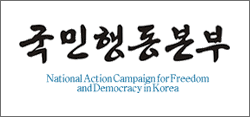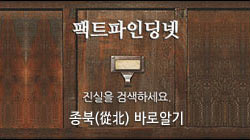오늘의 뉴스/부시-江澤民 전화통화
부시 미국 대통령은 어제 江澤民 중국 국가주석에게 전화를 걸어 북한정권이 핵개발을 포기하도록 협조해줄 것을 요청했다. 부시 대통령은 그 뒤 기자들에게 '외교적인 노력을 포함하여 모든 방법을 강구하겠다'고 말했다. 군사적 해결책도 배제하지 않는다는 뜻이다.
중국은 對外원조의 반을 북한에 주고 있다고 한다. 미국은 북한이 핵무기를 개발하면 동아시아에 불안이 조성된다고 경고하고 있다. 그 뜻은 북한이 핵무장을 하면 일본과 한국이 그 방향으로 나아가 동북아가 핵 경쟁장으로 변모하게 될 것이란 뜻이다. 특히 일본이 핵무장을 시작하면 중국에 크나큰 직접 위협이 될 것이란 점을 점잖게 경고하고 있는 것이다.
중국도 한반도의 비핵화를 지지한다고 여러 번 선언했으므로 김정일의 핵무장을 허용하고 싶지는 않을 것이지만 저지 수단이 있는가는 의심스럽다. 폴 울포위츠 미 국방부 차관은 최근 중앙일보-워싱턴 포스트 공동주최 세미나에서 중국이 탈북자들을 받아주어야 한다고 강조했다. 이는 미국 정부가 탈북자 러시를 일으켜 김정일 정권을 붕괴시키려 한다는 추측을 낳았다.
중국과 미국의 관계는 9.11 테러 이후 좋아졌다. 미국은 이 관계를 이용하여 중국이 김정일 정권을 포기하도록 공작할 것이다. 중국은 김정일 정권 이후 정권이 親中노선을 견지하고 개혁으로 나아간다는 보장이 있으면 김정일 정권을 포기할 가능성도 배제할 수 없다.
김정일은 등소평을 매우 미워했다고 한다. 황장엽씨의 증언에 따르면 주위에서 너무 그런 말을 많이 하지 말라고 충고해도 듣지 않았다고 한다. 중국에서도 이런 김정일의 태도를 잘 알고 있다는 것이다. 중국과 북한정권과의 관계 변화를 주시할 필요가 있다.
*뉴욕 타임스의 관련 기사
Bush Urges Chinese President to Press North Korea on Arms
By JAMES DAO
ASHINGTON, Feb. 7 ?President Bush urged President Jiang Zemin of China today to help resolve the crisis with North Korea, telling him in a phone conversation that Beijing had a responsibility to prevent the North from developing nuclear weapons that could threaten much of Asia.
But even as he insisted that the crisis could be resolved peacefully, Mr. Bush told reporters that 'all options are on the table,' including military action, if diplomacy failed to prevent North Korea from resuming its efforts to build nuclear weapons.
'I will continue working diplomatically to convince Kim Jong Il that he will be further isolated if he continues to develop a nuclear program,' Mr. Bush said of North Korea's leader.
Shortly after Mr. Bush conferred with Mr. Jiang, Pentagon officials said that Secretary of Defense Donald H. Rumsfeld had ordered the aircraft carrier Carl Vinson from the West Coast to Japan, to replace the Kitty Hawk carrier battle group, which is heading to the Persian Gulf.
The swap ensures that America's military presence around the Korean peninsula will not shrink even if the United States attacks Iraq, allowing for what White House officials have called a 'robust deterrent' against North Korea. The latest deployment comes on top of a decision to place 24 long-range bombers on alert to move toward the area on short notice.
North Korea issued a new round of threats today, saying that a buildup of American 'aggression troops' could lead to nuclear war that would reduce both Koreas 'to ashes.' The statement called on South Koreans to join the north in a 'struggle to check and frustrate the U.S. arms buildup.'
Concerns about North Korea's nuclear program intensified this week when the North announced that it was restarting a mothballed nuclear reactor at Yongbyon that can produce plutonium for nuclear weapons. The move came after evidence that the north had begun removing spent nuclear fuel rods from storage, possibly in preparation for reprocessing them for weapons.
Many American officials believe that China could play a lead role in pressuring North Korea, particularly now that America's relations with South Korea have been strained.
China is one of North Korea's largest trading partners and, since the collapse of the Soviet Union, has emerged as the largest provider of economic, food and fuel aid to the north, American officials said. By some estimates, half of China's foreign aid budget goes to North Korea.
American officials say the Chinese have been a conduit for American messages to North Korea and have worked with Washington to set up a multinational meeting at which American and North Korean officials could meet privately. But some officials have complained privately that Beijing could do more to pressure concessions from the North.
Speaking at the Foreign Press Center in Washington, John Wolf, the assistant secretary of state for nonproliferation, said a nuclear North Korea 'would pose an enormous threat to its neighbors and would create an unstable situation in Northeast Asia, which would be a threat not only in the region but, given the importance of the countries in that region, it would be a threat that would worry us all.'
He called North Korea 'Missiles-R-Us,' because of its history of selling ballistic missile technology.













 조갑제
조갑제







 트위터
트위터 페이스북
페이스북 네이버
네이버



























